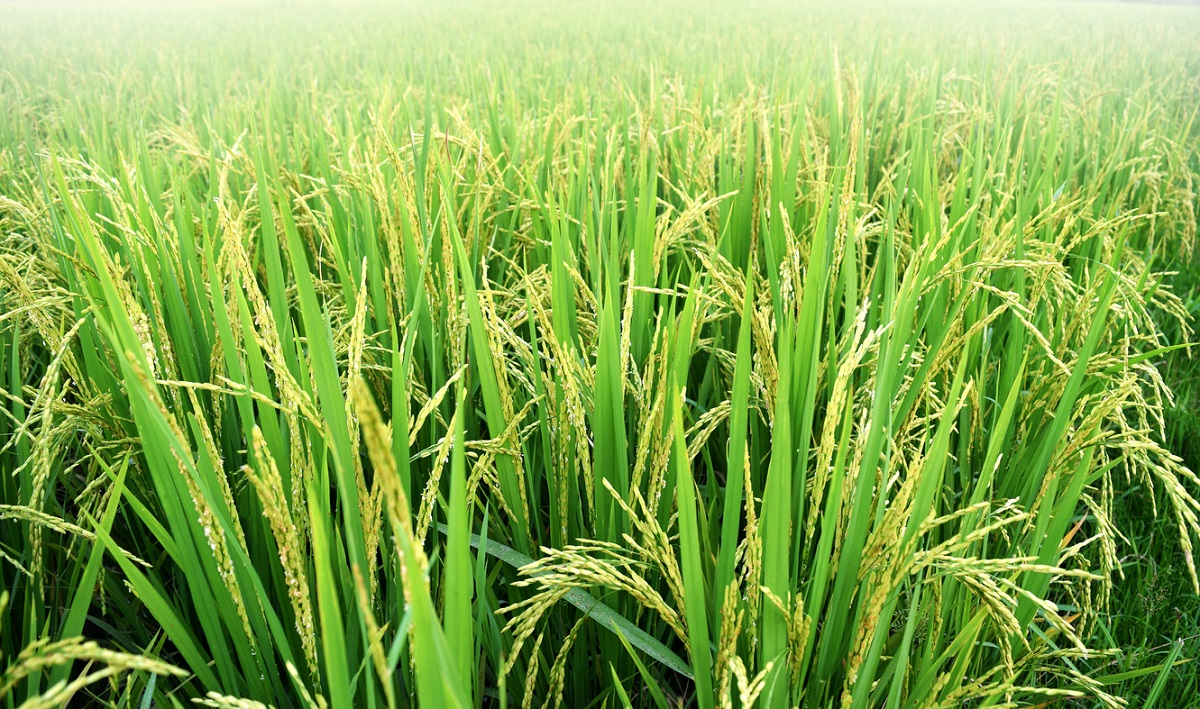
MitoTALENs Reveal Role of Mitochondrial Gene in Rice Pollen Development
April 7, 2021| |
Researchers from Tohoku University and partners successfully restored pollen development in sterile rice by disrupting a mitochondrial gene using mitochondrion-targeted transcription activator-like effector nucleases (mitoTALENs). The results are published in BioRxiv.
Genomes in plant mitochondria sometimes contain cytoplasmic male sterility (CMS)-associated genes, which are used by breeders to develop high-yielding F1 hybrid seed in different crops. The gene orf352 was found to be associated with CMS in rice, however, its role remains elusive. Thus, the research team used mitoTALENs to turn off orf352 in the mitochondrial genome of cytoplasmic male sterile rice RT102A.
A total of 18 independent transformation events in RT102A were isolated, which indicated genome editing of orf352 including total deletion of the gene in the mitochondrial genome in several plants. Plants with a new mitochondrial gene encoding amino acids 179 to 352 of ORF352 showed similar shrunken pollen grain characteristic as RT102A, while the plants either lacking orf352 or harboring a new gene encoding amino acids 211 to 352 of ORF352 exhibited partial rescue of pollen viability and germination.
The findings of the study imply that orf352 disruption can partially restore pollen development, indicating that amino acids 179 to 210 from ORF352 may contribute to pollen abortion.
Read more in BioRxiv.
| |
You might also like:
- Downregulation of OsSPX1 Causes Semi-Male Sterility and Grain Yield Reduction in Rice
- CRISPR-mediated Knockout of SaF/SaM Overcomes the Hybrid Male Sterility in Rice
- Chinese Scientists Identify Major Regulatory Gene in Rice
Biotech Updates is a weekly newsletter of ISAAA, a not-for-profit organization. It is distributed for free to over 22,000 subscribers worldwide to inform them about the key developments in biosciences, especially in biotechnology. Your support will help us in our mission to feed the world with knowledge. You can help by donating as little as $10.
-
See more articles:
-
News from Around the World
- Climate Change Slowed Agricultural Productivity Growth by 21% since 1961
- Study Finds Spinach as Edible Substrate to Grow Meat from Lab
- New Heat Sensing Gene to Help Crops Battle Climate Change
- Health Canada: Gene-Edited Crops are Safe
- Experts Tackle Importance of New Breeding Technologies in Food and Nutritional Security
- GM White Clover Field Trial in Australia Gets Approval
- Experts Highlight Impacts of Agri-biotech Adoption in Vietnam
- Labeling Gene-Edited Foodstuffs is Impossible Says Italian MEP
-
Research Highlights
- Identified Gene Boosts Water Use Efficiency in Apples
-
Plant
- Japanese Consumers Prefer Gene Editing Applications on Vegetables over Livestock
- Experts Present Two Efficient CRISPR-Cas9 Systems for Soybean
- MitoTALENs Reveal Role of Mitochondrial Gene in Rice Pollen Development
-
Read the latest: - Biotech Updates (January 21, 2026)
- Gene Editing Supplement (January 28, 2026)
- Gene Drive Supplement (February 22, 2023)
-
Subscribe to BU: - Share
- Tweet

